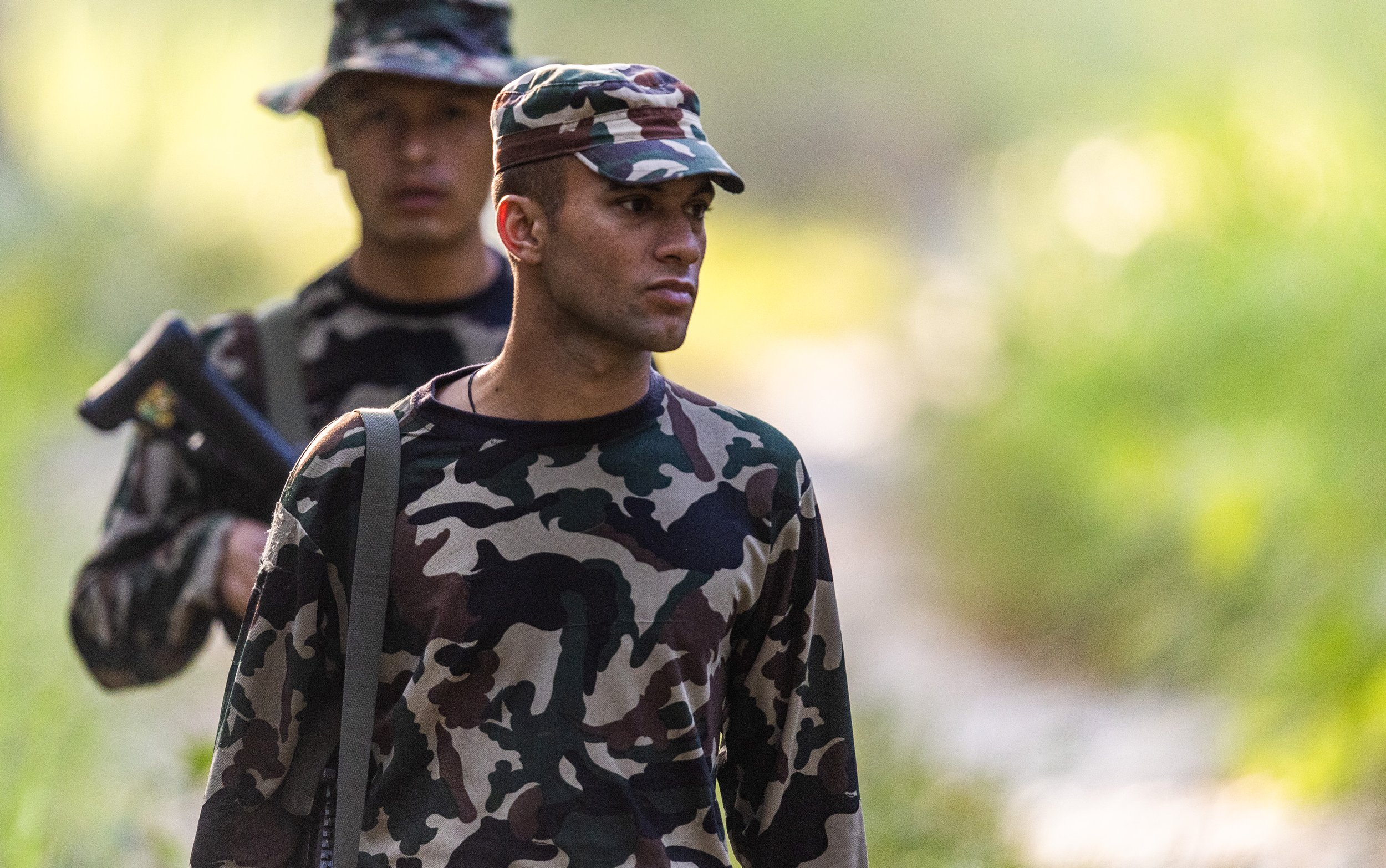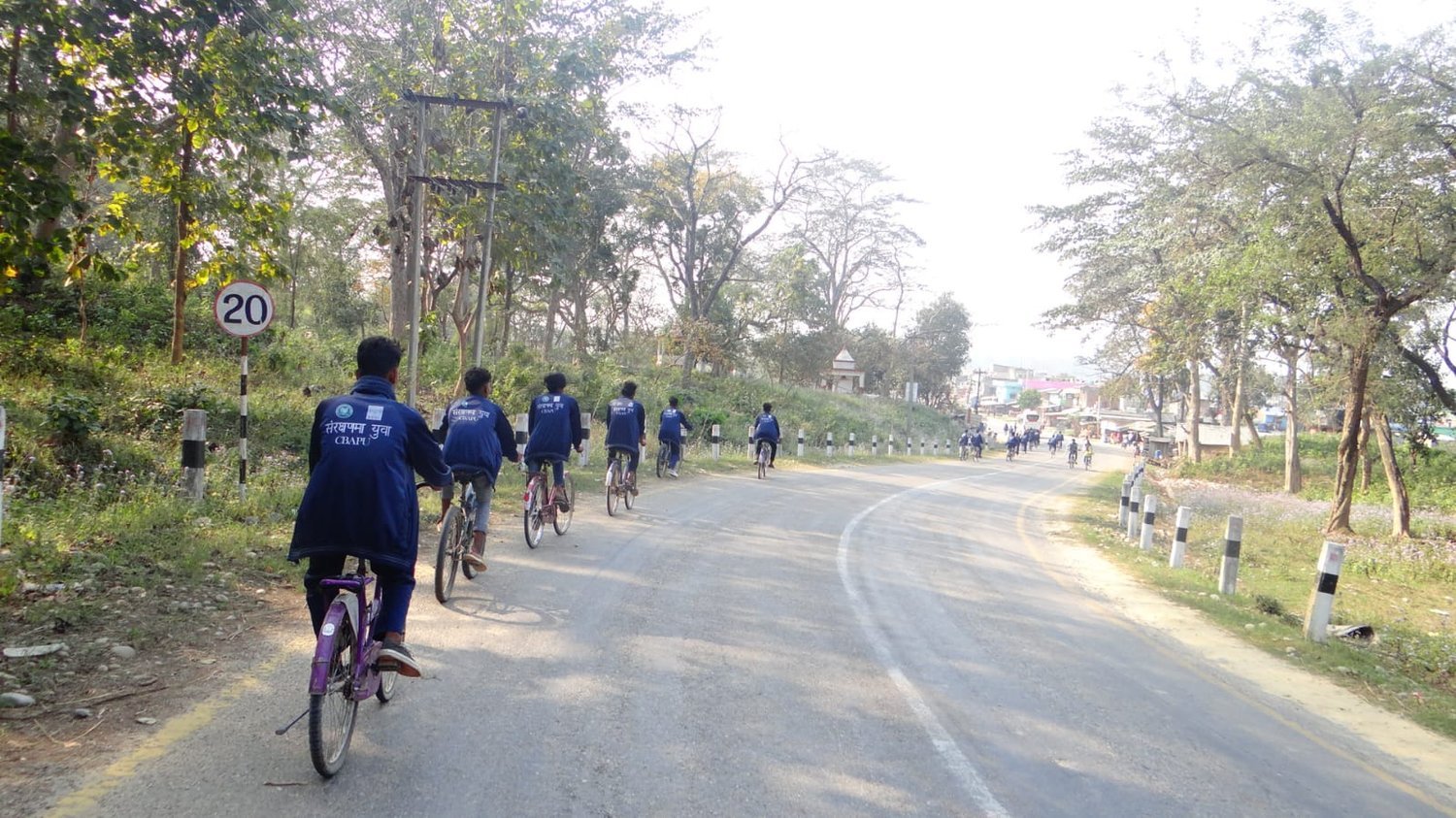GC Strengthens Wildlife Protection in Bardia – Banke Complex Nepal
Patrolling can take place while riding elephants, which is one of the safest ways to patrol in territories covered by tigers. Photos ©Paul Hilton
Project Summary
This project consists of the first 6 months of activities designed for the two years of project duration. The Bardia – Banke Complex (BBC) in Nepal is a significant conservation area that includes the Bardia National Park (BNP) and Banke National Park (BaNP), along with their buffer zones. This complex is crucial habitat for many flagship endangered species, including the Bengal tiger, Asian elephant, Greater One-horned rhinoceros, Swamp deer and gharial. The complex confronts numerous challenges, including poaching and conflicts between humans and wildlife. The conflict has emerged due to increasing tiger and elephant populations in recent years. These issues require urgent attention and actions to ensure human-wildlife coexistence. This project will strengthen anti-poaching operations, curb wildlife poaching, and mobilize Community-Based Anti-Poaching Units (CBAPUs) in the Bardia-Banke Complex. Advanced surveillance technologies will be deployed to improve communication, and also a network of informants will be used to obtain accurate information on illegal activities. We anticipate that these multifaceted and collaborative approaches will safeguard the rich biodiversity of the Bardia-Banke ecosystem. We should compare the baseline data from the first year with future years to understand the impact of the project activities.
Project Activity
Photo ©Paul Hilton
Logistic Support for Long-Range Patrolling
The Bardia National Park conducted long-range patrolling and identified probable areas prone to illegal activity. During the patrolling, six staff from Jabar Jung Gan (Battalion) and four from Bardia National Park have been mobilized to identify the sites and to curb the wildlife poaching and control smuggling of forest products and other illegal activities along with wildlife observation in Bardia National Park.
From the patrolling in Bardia National Park, it is identified that the area where illegal activities like illegal felling of trees, wildlife poaching, fuelwood collection, and other illegal activities frequently happen is in the Bhurigaun and Rammapur areas of the park. The team also identified the potential habitats and occurrences of various wildlife species in the Rammapur sector of the park. The operation resulted in the arrest of 52 individuals from the park, comprising 36 females and 16 males. Some of them entered the park to collect fuelwood, mushrooms, niuro, and felled trees, while others were involved in illegal fishing. 48 individuals received penalties from the headquarters, while the remaining ones received sentences.
From the patrolling troops, it is recommended that increasing patrol and such types of sweeping and camping operations in the Chure area of the park, as well as frequent vehicle patrols in the Karnali floodplain areas, are urgently required.
Photo ©Paul Hilton
Deployment of Spy camera for advanced park surveillance
After a thorough review and evaluation of potential vendors, we have completed the vendor listing for the purchase of spy cameras aimed at curbing wildlife poaching and other illegal activities. Based on our assessments, we have decided to procure 15 Browning cameras, known for their reliability and high-quality performance in outdoor surveillance. These cameras will play a crucial role in enhancing our monitoring capabilities in vulnerable areas, enabling us to take proactive measures against poaching and illegal activities.
Once we receive the spy camera, in collaboration with the concerned national park, the deployment of the spy camera will be done in the potential area where the illegal activities are highly active.
Photos ©Paul Hilton
Support CBAPUs for Anti-Poaching Patrolling Activities
Community-based anti-poaching units are composed mostly of youth volunteers who have a passion for nature and wildlife conservation. Together with the Bufferzone Committee, National Park Officials, and Security personnel, do regular patrolling in the forest area of the buffer zone. They also watch suspicious movement of strangers in the village and inform it to the park authority.
Till this reporting period, the CBAPU from the Madhuban (Dalla) area has been continuously patrolling and for them, constant support has been provided. Recently, in the month of July, an August 4 meeting has been conducted, and 2-night camping patrolling has been conducted.
Bicycle support for CBAPUs
The CBAPUs play a critical role in safeguarding our national parks. To improve their patrolling efficiency and boost motivation, we proposed providing bicycles to CBAPU members. These bicycles will allow them to cover larger areas more quickly, enhancing their ability to monitor and protect the parks. Additionally, by equipping CBAPUs with bicycles, we demonstrate our commitment to their well-being and encourage active participation. The vendor selection process has been completed, and we plan to procure 30 bicycles for distribution across both parks in the first half of the year.




















